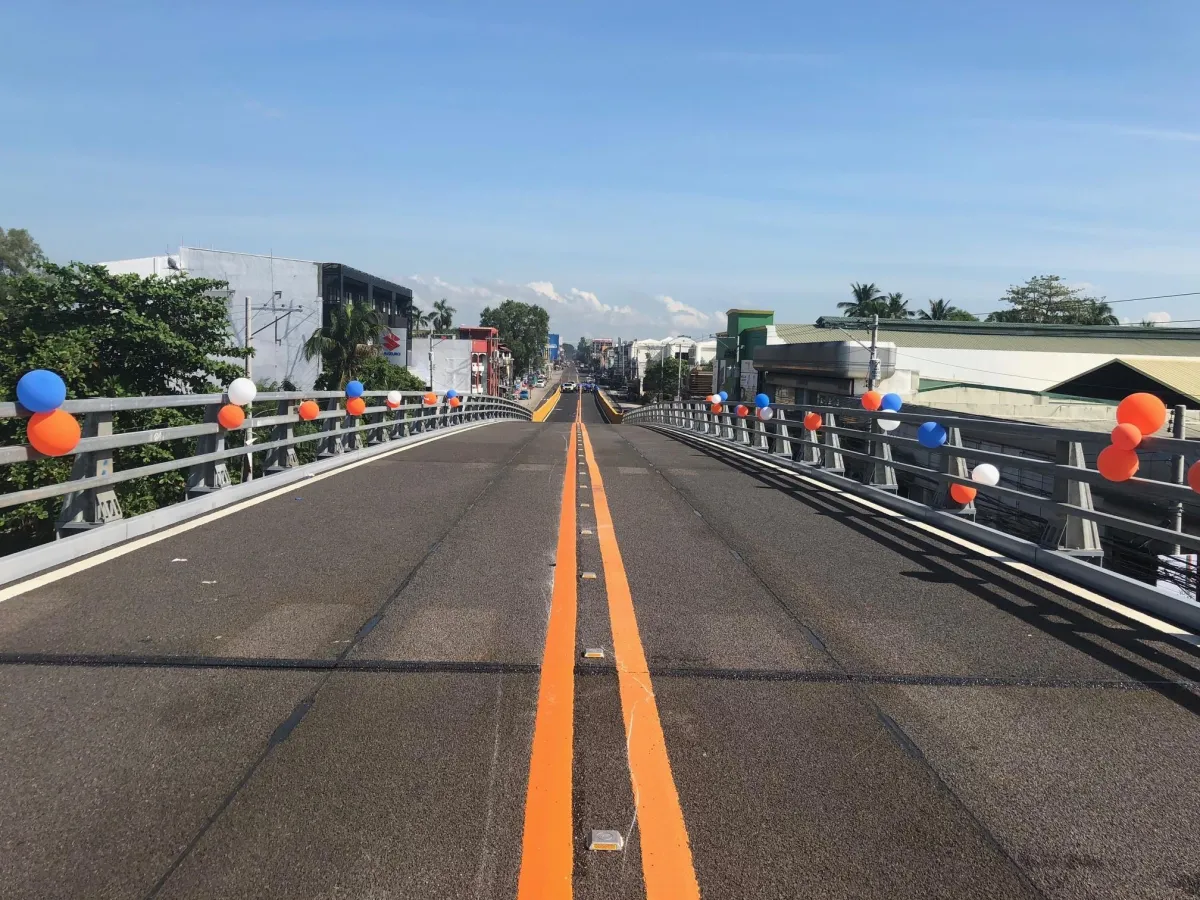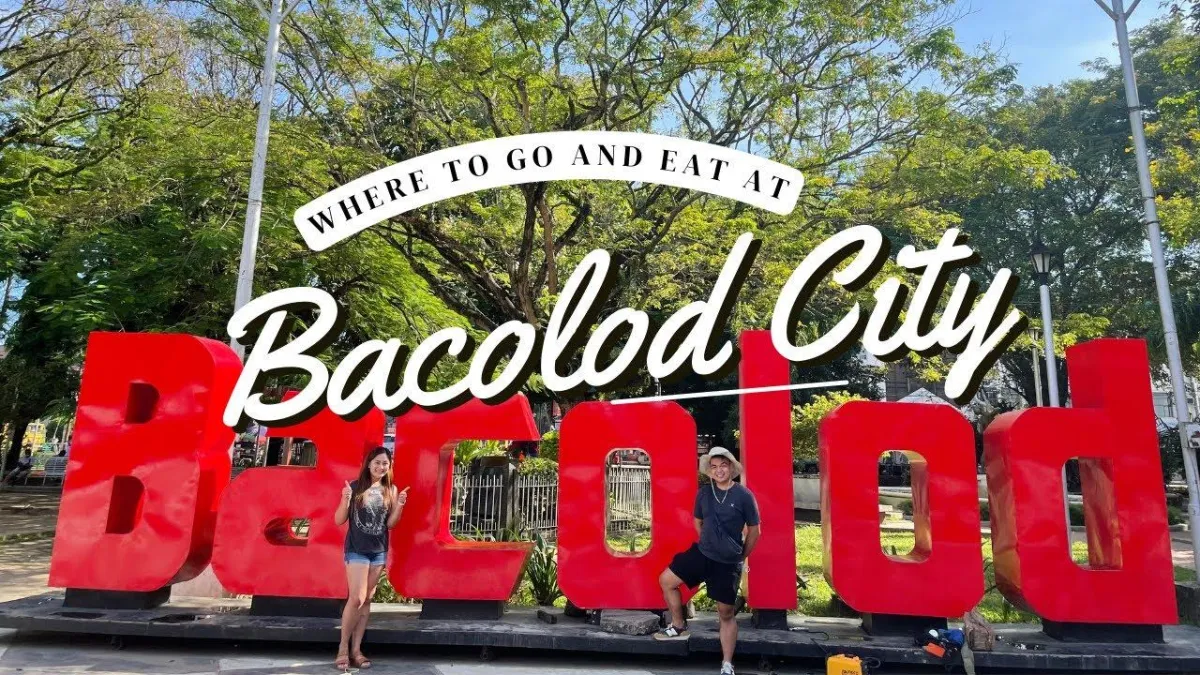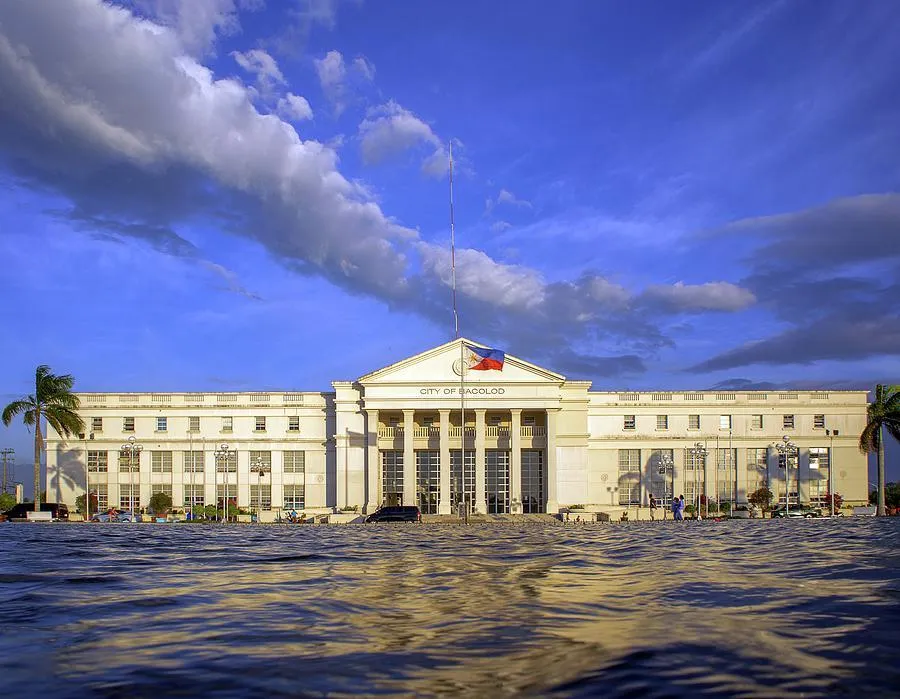⭕ SMART: 098 5973 7798 ⭕ GLOBE: 091 5874 9128 ⭕LANDLINE: 034 466 4554
Bacolod City Review
Bacolod City, often referred to as the "City of Smiles," is nestled on the western coast of Negros Island in the Philippines. Its history is intertwined with the lush landscapes and volcanic peaks that define the region, most notably Mount Kanlaon, a majestic volcano that looms over the city. Long before the city's inception, Bacolod was inhabited by indigenous Negrense tribes who thrived in the fertile plains and coastal areas. These early settlers, living in harmony with nature, left behind traces of their presence in the form of pottery, artifacts, and burial sites.
Spanish Colonial Influence
The arrival of Spanish colonizers in the Philippines in the 16th century marked a pivotal turning point in Bacolod's history. The Spaniards, drawn by the region's rich soil and agricultural potential, established settlements along the coastline. Bacolod, then a part of the larger province of Iloilo, became a Spanish enclave.
The influence of Spanish colonial rule left an indelible mark on the region's culture, religion, and governance. The arrival of Catholic missionaries led to the conversion of many locals to Christianity, with the establishment of churches, schools, and convents.
The Age of Sugar
In the 19th century, Bacolod's landscape underwent a transformative change that would forever shape its destiny. The sugar industry, with its insatiable global demand, established a firm foothold in the region. The fertile plains and tropical climate of Negros Island made it ideal for sugarcane cultivation.
Sugar barons, known as "hacienderos," flocked to Bacolod and the surrounding areas, amassing vast estates and plantations. The influx of wealth from the sugar industry transformed Bacolod into a thriving center of commerce and trade.
The Revolution and Independence
The late 19th and early 20th centuries brought about a period of significant political change in the Philippines. Bacolod, like many other cities, became a hotbed of revolutionary fervor. The call for independence from Spanish colonial rule resonated strongly with the people of Bacolod.
Key figures in the struggle for independence, including Aniceto Lacson and Juan Araneta, hailed from Bacolod. Their leadership and the support of local revolutionaries played a crucial role in the fight for freedom. In November 1898, Bacolod was liberated from Spanish rule, marking a momentous occasion in the city's history.

American Influence and the Commonwealth Era
The end of Spanish rule saw the Philippines transition into American colonial territory. Bacolod, like the rest of the country, adapted to the changes brought about by American governance. The sugar industry continued to flourish, and Bacolod's economic prominence grew.
In 1938, Bacolod officially became a chartered city, marking a significant milestone in its development. The city continued to prosper during the Commonwealth era, with sugar as its economic backbone.
The Challenges of War and Reconstruction
World War II brought about significant challenges and changes for Bacolod. The city experienced the Japanese occupation, a period marked by hardship and suffering. Residents endured food shortages and the harsh realities of war.
After the war, Bacolod faced the arduous task of reconstruction and rehabilitation. The resilience of its people was evident as they worked tirelessly to rebuild their city and their lives.
The City of Smiles Emerges
The post-war era ushered in a new era of growth and development for Bacolod. The sugar industry continued to thrive, and the city's economic prospects looked promising. However, it was during this time that Bacolod earned its enduring moniker—the "City of Smiles."
In 1954, Bacolod hosted the first-ever MassKara Festival, a colorful and joyous celebration that aimed to lift the spirits of the city's residents after a period of economic and emotional challenges. The festival featured elaborate masks and vibrant street dancing, captivating visitors and locals alike with its infectious spirit of merriment.

Modernization and Progress
As the years rolled on, Bacolod City embraced modernization while preserving its cultural heritage. The city's skyline began to evolve with the construction of commercial buildings, malls, and educational institutions. Bacolod became known not only for its sugar industry but also as a hub for education, healthcare, and commerce in Western Visayas.
The people of Bacolod, known for their warm and welcoming nature, continued to celebrate their cultural heritage through events like the MassKara Festival, which grew in scale and popularity. Bacolod's culinary scene also thrived, with the city gaining recognition for its delicious local dishes, including chicken inasal and piaya.
A City of Progress and Promise
Today, Bacolod City stands as a testament to the resilience and progress of its people. It is a city that has embraced its rich history while looking forward to a future filled with promise and potential.
The sugar industry, while still a significant contributor to the city's economy, has been complemented by a diverse range of industries, including information technology and business process outsourcing (IT-BPO). Bacolod's growth as an IT-BPO destination has brought economic opportunities to its residents and further established its presence on the global stage.
The Bacolod of Tomorrow
As Bacolod City continues to evolve, it faces new challenges and opportunities on its path to the future. The city's commitment to education, healthcare, and sustainable development positions it for continued growth and progress.
In conclusion, Bacolod City is more than just a place on the map; it is a testament to the resilience, spirit, and vibrant culture of the Filipino people. Its journey from a small settlement to a thriving metropolis is a testament to the indomitable spirit of its residents. Bacolod remains a city of smiles, a place where the warmth of its people is as enduring as its rich history.
Bacolod City, the capital of Negros Occidental province in the Philippines, has a rich history that traces its origins back to the Spanish colonial period. The city's development and establishment can be understood through the following key points:
Spanish Colonial Era: The area where Bacolod City now stands was originally inhabited by indigenous groups, including the Negritos and the Atis. The Spanish colonizers arrived in the region in the 18th century and established settlements as part of their efforts to expand their influence and control over the Philippines.
Growth of Sugarcane Industry: Similar to Silay City and other parts of Negros Occidental, the growth of the sugarcane industry played a crucial role in Bacolod's development. The fertile lands and favorable climate of the region made it conducive for sugarcane cultivation and production.
Hacenderos and Sugar Barons: As the sugar industry flourished, wealthy hacenderos (landowners) and sugar barons established large sugarcane plantations in the area. These plantations brought economic prosperity to the region, leading to the rise of a wealthy elite class.
Settlement and Urbanization: The growth of the sugar industry attracted a growing population to the area, including migrants and laborers who came to work on the plantations. Over time, the settlement around Bacolod Bay expanded, gradually transforming into a town.
Separation from Iloilo: Bacolod was initially part of Iloilo province. On October 19, 1849, Bacolod gained political autonomy and became a separate politico-military province, with its own government. This marked an important step toward the city's eventual establishment.
Cityhood: Bacolod continued to grow and prosper over the years. On June 18, 1938, Bacolod was officially granted cityhood through Commonwealth Act No. 326. This marked the formal recognition of Bacolod as a chartered city, distinct from a municipality.
Cultural and Economic Center: Bacolod City's status as the capital of Negros Occidental and its central location within the province further cemented its role as a cultural and economic hub. The city became known for its vibrant festivals, including the famous MassKara Festival, which celebrates its resilience and festive spirit.
Today, Bacolod City stands as a bustling urban center with a mix of modern developments and historical landmarks. Its history as a significant player in the sugarcane industry, combined with its cultural heritage and dynamic community, has contributed to its growth and popularity as a prominent city in Negros Occidental.

Should You Travel To Bacolod
Filipinos have a strong affection for Bacolod City due to a combination of cultural, historical, and experiential factors that make the city a beloved destination. Here are some reasons why Filipinos love Bacolod City:
Warmth and Friendliness: Bacolod is known for its warm and welcoming locals who embody the spirit of "The City of Smiles." Filipinos appreciate the genuine hospitality and friendliness of the Bacolodnons, which creates a sense of belonging and comfort.
MassKara Festival: The world-renowned MassKara Festival is a major draw for Filipinos. This vibrant and colorful celebration reflects the resilience, joy, and creativity of the Bacolodnons. Visitors are captivated by the elaborate masks, costumes, street dancing, and infectious festive atmosphere.
Culinary Delights: Bacolod is a food lover's paradise, offering a diverse array of delectable dishes and local specialties. Filipinos enjoy savoring Bacolod's famous chicken inasal, piaya (sweet flatbread), and other unique delicacies that showcase the city's culinary heritage.
Rich History and Culture: Bacolod's history is closely intertwined with the sugar industry, haciendas, and the struggle for independence. Filipinos who appreciate history and culture find Bacolod's heritage houses, museums, and historical sites fascinating and enlightening.
Scenic Beauty and Landmarks: The city boasts beautiful parks, scenic views, and iconic landmarks that capture the hearts of Filipinos. From the Capitol Park and Lagoon to the San Sebastian Cathedral, these sites offer picturesque backdrops for memorable experiences.
Arts and Creativity: Bacolod has a thriving arts scene with local artists contributing to the city's vibrancy. Filipinos who appreciate art, music, and creative expressions are drawn to Bacolod's galleries, performances, and cultural events.
Relaxing Atmosphere: Bacolod offers a more relaxed and laid-back atmosphere compared to larger urban centers. Filipinos seeking a break from the hustle and bustle of city life find Bacolod's provincial charm and serene environment appealing.
Festivals and Events: In addition to MassKara, Bacolod hosts various other festivals and events that showcase its cultural diversity, traditions, and talents. These celebrations provide Filipinos with opportunities to immerse themselves in the city's vibrant spirit.
Gateway to Exploration: Bacolod serves as a gateway to exploring the beauty of Negros Occidental. From its scenic countryside to nearby islands and attractions, the city offers Filipinos a convenient starting point for further exploration.
Sense of Identity: Filipinos take pride in Bacolod's distinct identity as the "City of Smiles" and a hub of cultural richness. Visiting Bacolod allows them to connect with this identity and create lasting memories.
In summary, Filipinos love Bacolod City for its cultural heritage, festive celebrations, culinary delights, friendly locals, and the unique experiences it offers. Bacolod's blend of history, culture, and modern comforts resonates deeply with Filipinos, making it a cherished destination that holds a special place in their hearts.
Why Do Filipinos Love Going To Bacolod In Negros Occidental
Bacolod, often hailed as the "City of Smiles," holds an irresistible charm that beckons people from all walks of life. Nestled in the heart of Negros Occidental, Philippines, Bacolod exudes a magnetic allure that captures the hearts of both locals and visitors. A medley of factors converges to create an enchanting tapestry of experiences, defining why people love Bacolod with an unwavering passion.
One of the city's most celebrated draws is undoubtedly the world-renowned MassKara Festival. A symphony of colors, rhythms, and joy, this festival epitomizes Bacolod's indomitable spirit and resilience. The vibrant masks, exuberant street dancing, and infectious merriment infuse the city with an energy that is simply infectious. People are drawn to Bacolod during the MassKara Festival to immerse themselves in this carnival of positivity, where every smile reflects the unity and strength of the community. Bacolod's reputation as a culinary haven also casts an alluring spell. The aroma of sizzling chicken inasal wafting through the air is enough to ignite a sensory journey of flavors.
Filipinos and visitors alike find themselves indulging in the mouthwatering local delicacies, like the beloved piaya and the sumptuous batchoy. The city's eateries and markets become havens for gastronomic exploration, turning every meal into an adventure. Beyond the palate, Bacolod unveils a rich historical tapestry that continues to captivate. The well-preserved heritage houses and museums stand as poignant testaments to the city's storied past. Walking through the cobblestone streets and marveling at the intricate woodwork of ancestral homes, one can almost feel the echoes of a bygone era. This immersion in history fosters a deep connection to Bacolod's roots, allowing people to glimpse into the lives and legacies of those who shaped the city.
Bacolod's scenic beauty and landmarks further enhance its allure. From the picturesque Capitol Park and Lagoon to the awe-inspiring San Sebastian Cathedral, the city offers visual treats that leave lasting impressions. The laid-back ambiance, combined with the genuine warmth of the Bacolodnons, creates an atmosphere of relaxation and camaraderie. Visitors often find solace in the city's serene environment, a respite from the hustle and bustle of modern life.
In essence, people love Bacolod for its festive vibrancy, cultural richness, culinary delights, historical significance, and the authentic connections forged with its people. The city's ability to seamlessly blend tradition and progress, coupled with its welcoming embrace, transforms every visit into a cherished memory. Bacolod's enchanting allure resonates deeply, reminding us that within its smiles, flavors, and history, lies a treasure trove of experiences waiting to be discovered and cherished.
Our Conclusion On Why People Travel To Bacolod
In conclusion, Bacolod, often celebrated as the "City of Smiles" within the heart of Negros Occidental, Philippines, is an embodiment of cultural richness, historical significance, and enchanting experiences. Its magnetic charm emanates from a harmonious blend of vibrant festivals, culinary delights, well-preserved heritage, and a warm, welcoming community.
Bacolod's crown jewel, the MassKara Festival, epitomizes the city's resilience and positivity, drawing people from near and far to revel in its kaleidoscope of colors and jubilation. The festival's infectious energy permeates the city, leaving an indelible mark on the hearts of those who partake.
Culinary enthusiasts find solace in Bacolod's gastronomic haven, where every bite is a journey through flavors and cultures. The city's delicacies, especially the iconic chicken inasal, tell stories of tradition and innovation, tantalizing palates and creating cherished memories.
Amidst cobblestone streets and well-preserved heritage houses, Bacolod reveals a tangible connection to its storied past. As visitors wander through its streets and explore its historical sites, a profound sense of appreciation for the city's roots is ignited.
Bacolod's scenic landscapes and landmarks offer captivating backdrops that inspire awe and introspection. The blend of provincial charm and warm hospitality cultivates an atmosphere of relaxation, inviting travelers to unwind and connect with the genuine smiles of its people.
Bacolod, the City of Negros Occidental, stands as a testament to the power of cultural pride, unity, and the enduring spirit of its community. Its allure rests not only in its festivals, flavors, and heritage, but in the genuine connections forged between people and place. Bacolod's legacy is one of joy, celebration, and a shared appreciation for life's simple pleasures, making it a cherished gem within the heart of the Philippines.

